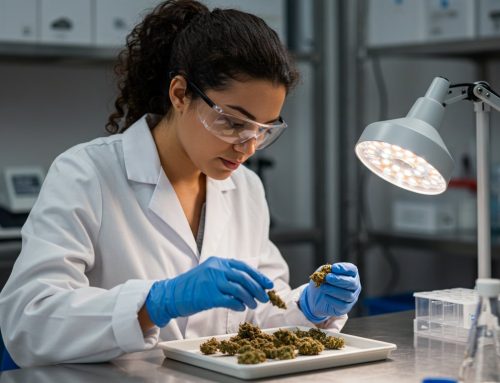Explosive Policy Shift Toward Social Cannabis
Since legalizing adult-use cannabis in 2016, Massachusetts has yet to authorize public consumption venues. That may soon change as regulators finalize rules to permit social consumption in lounges, cafes, and temporary event spaces. Chapter 180 of the 2022 state cannabis reform law granted municipalities the authority to allow on-site consumption. The Cannabis Control Commission (CCC) has been actively drafting regulations, consulting with public health advocates, law enforcement, and community stakeholders to shape a system that balances access, safety, and oversight. These efforts reflect growing recognition that social cannabis spaces are a logical evolution of the legal market.
Expanded Licensing Model for Diverse Consumption Spaces
To accommodate varying business models and community needs, the CCC’s proposal includes three types of licenses. The Supplemental Social Consumption Lounge would allow existing cannabis retailers to create designated consumption areas, similar to tasting rooms. The Hospitality License enables non-cannabis businesses such as cafes, theaters, or wellness centers to offer on-site cannabis use in a setting where alcohol and tobacco are not permitted. Lastly, the Event Organizer License would support cannabis use at short-term events like concerts and festivals, with a limit of five consecutive days or 24 events annually per license.
Each license type comes with specific application and renewal fees ranging from $1,000 to $10,000 depending on the scale and type of operation. Applicants must provide detailed operational plans addressing odor control, ventilation, age verification, and public safety protocols. The framework also limits the number of licenses held by a single entity and includes strict disclosure requirements for THC potency in all products offered.
Timeline: Draft to Final Regulations
The CCC published its initial draft regulations in December 2024, followed by a public comment period that extended into January 2025. Since then, commissioners have reviewed input from advocacy groups, municipal leaders, and industry representatives. Commissioner Nurys Camargo has indicated that the revised draft will be presented for further discussion in the spring of 2025, with final approval expected by mid-year.
Once finalized, the rollout of social consumption spaces will depend heavily on local municipal participation. Communities must opt in by passing local bylaws and securing host community agreements with applicants. This two-tiered process allows municipalities to tailor regulations to local needs while ensuring that operators meet consistent statewide standards.
Local Readiness and Industry Response
Several cities in Massachusetts are actively preparing for the introduction of social consumption venues. Boston, Holyoke, Northampton, Chelsea, Springfield, and Somerville are among those reviewing zoning policies and community engagement strategies. Local entrepreneurs have expressed strong interest, with plans for cannabis cafes, lounges paired with wellness activities, and culinary experiences incorporating low-dose THC.
Industry advocates argue that social consumption venues are essential for normalizing cannabis use, offering safe and regulated environments for consumption, and expanding access to residents who cannot use cannabis at home. Business owners are optimistic that the new rules will unlock opportunities for creative, community-oriented ventures while reinforcing public health safeguards.
Continued Hurdles and Equity Safeguards
Despite progress, several challenges remain. Previous efforts to launch a pilot program limited to select municipalities were paused to allow for a broader regulatory approach. The CCC has emphasized the importance of creating a statewide system with built-in equity protections.
To that end, social equity applicants will receive priority licensing during an exclusivity period lasting between three and five years. These measures aim to increase participation among individuals disproportionately impacted by past cannabis enforcement. Local governments will also need to align zoning codes, educate residents, and establish enforcement procedures to ensure the system’s success.
Conclusion
Massachusetts is on track to become one of the few states with a formalized system for public cannabis consumption. By mid-2025, the CCC expects to finalize a detailed regulatory framework enabling a variety of venues to offer safe, controlled cannabis use. With strong local interest and clear guidance for businesses, the state is poised to create a robust and inclusive model for social cannabis consumption.






